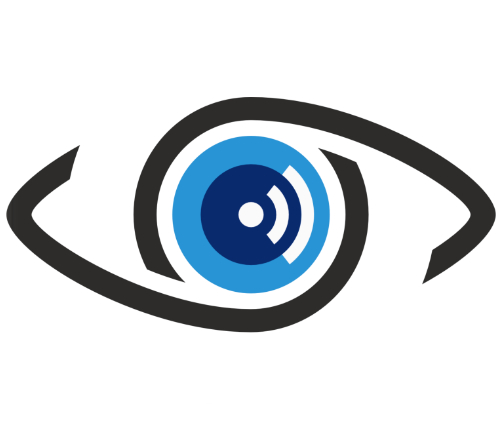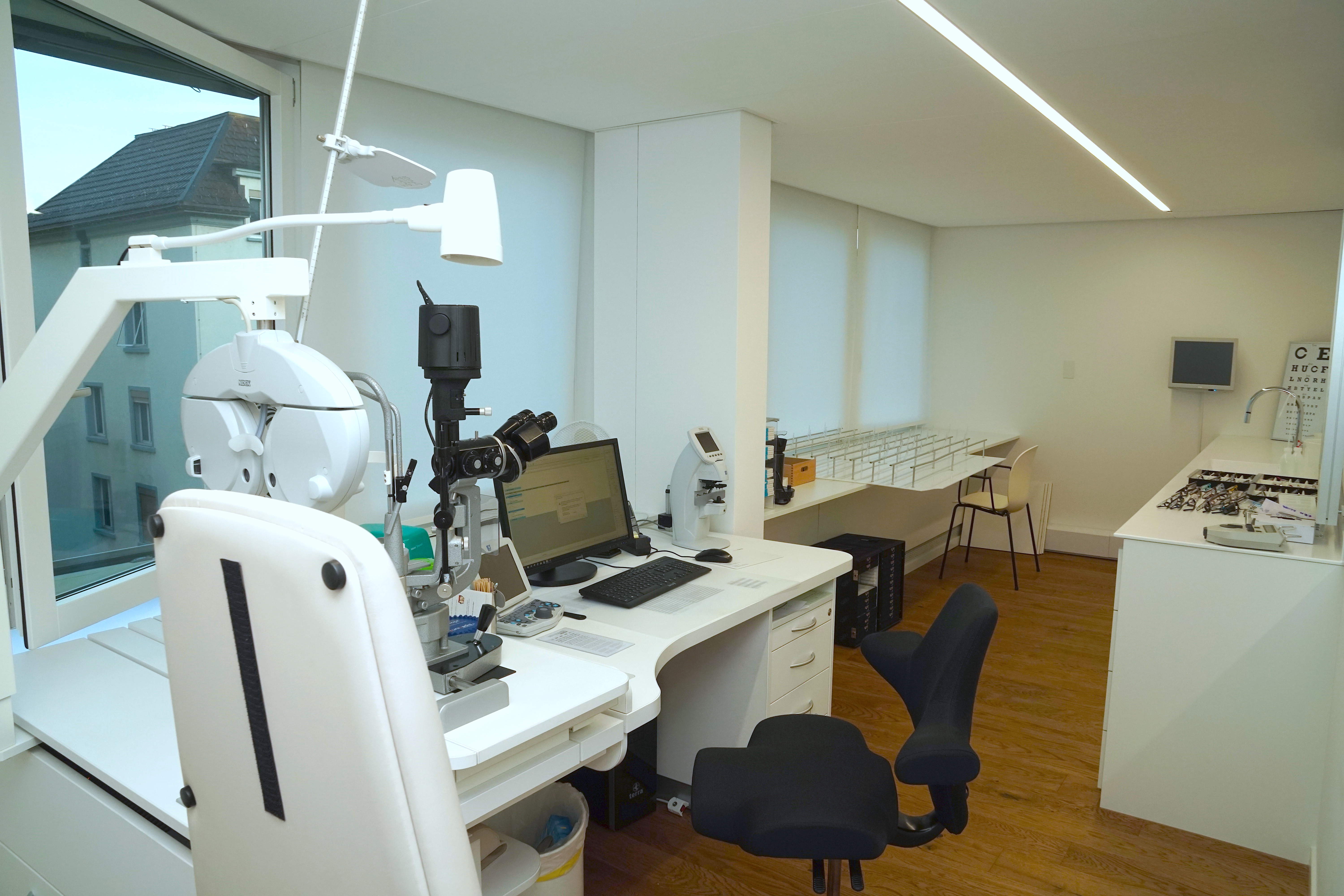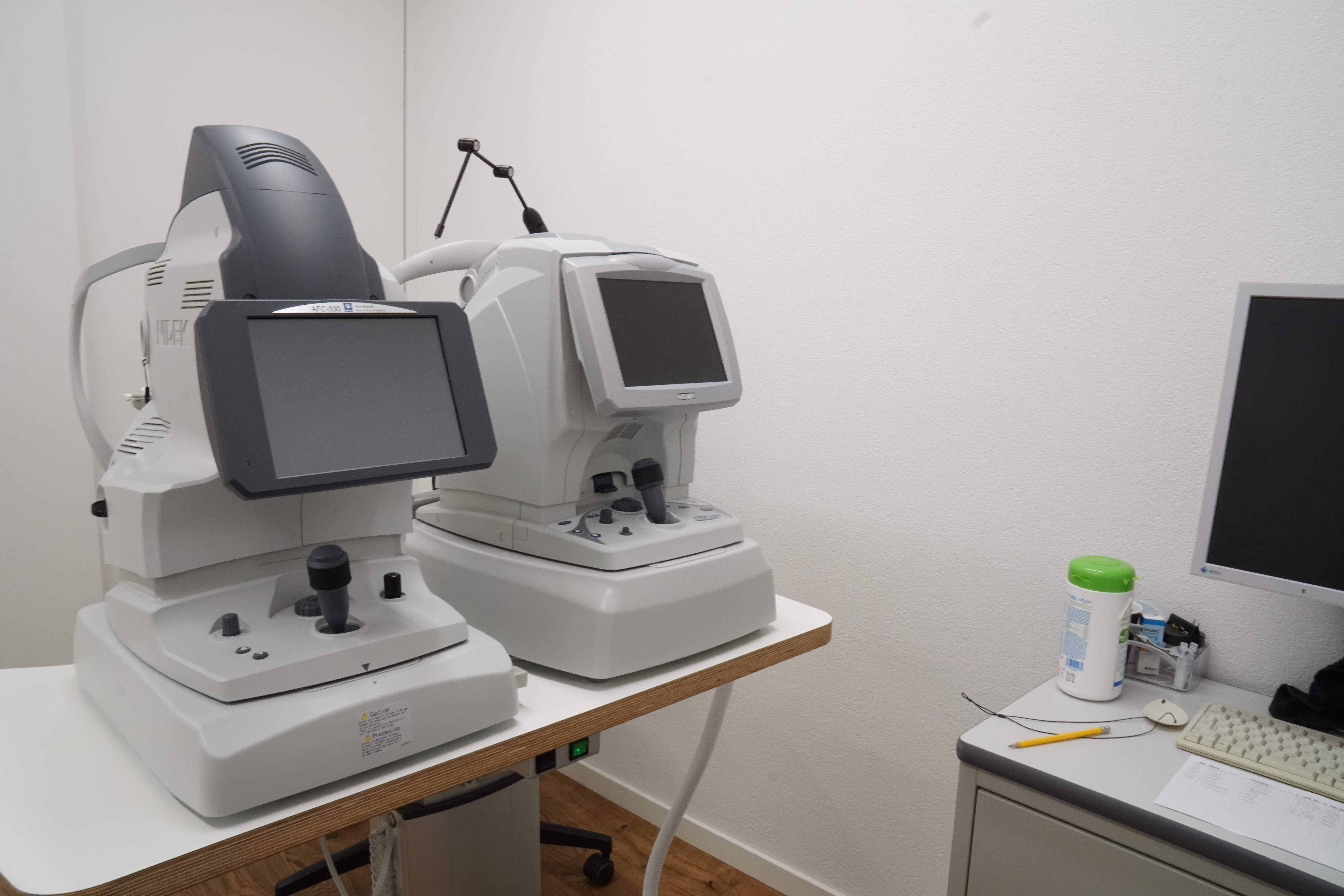Examinations
Eye testing
The tests at Augenzentrum Höfe are carried out with state-of-the-art medical equipment. In addition, our doctors allow plenty of time for medical discussion and will calmly answer your questions. Long-standing international medical experience, including at registrar and consultant level in the eye clinic of the world-famous Mt. Sinai School of Medicine at the City University of New York and University Eye Clinic of Oxford is the key to the success of our eye centre.
Details on the examinations and modern test equipment used can be found in the respective sub-sections.
Special tests
Adjustment of glasses and contact lenses
Care of diabetics
Glaucoma screening
Monitoring and treatment of glaucoma
Screening of age-related macular degeneration (AMD)
Monitoring and treatment of age-related macular degeneration (AMD)
Paediatric ophthalmology / orthoptics
Testing of colour vision
Low Vision Rehabilitation
Driving licence eye tests
Expert report / second opinion
Eyewear and contact lens consultation
Eyewear and contact lenses
Most
eye defects (short-sightedness, long-sightedness or astigmatism) can be
corrected by the use of the appropriate glasses or contact
lenses. Between the age of 40 and 50, so-called presbyopia (aging of the
eye) becomes apparent in every person, so that close-up objects can no
longer be seen clearly. The eyes have to readjust (accommodate) to see
close-up objects clearly. With increasing age the ability to accommodate
decreases.
Glasses
Short-range
glasses improve close-up vision. Varifocal glasses offer clearer vision
at all points. These glasses provide ideal distance and near vision,
and can be used for middle distances, for instance, for computer work.
In the case of special requirements in the workplace, workplace glasses with individually adjusted visual acuity may be helpful.
For
certain eye diseases (e.g. squint, weak vision, dry eye or macular
degeneration), special glasses can significantly improve your quality of
life.
Contact lenses
Contact
lenses (hard, soft or multifocal contact lenses) are an alternative to
glasses. Corneal and / or conjunctival damage can be avoided by the
perfect choice, with adjustment and monitoring of contact lenses by an
experienced contact lens specialist.
We use only high-quality contact lenses :
Very high oxygen permeability - breathable
High water content and high water binding capacity - comfortable to wear
Optionally with integrated UV blocking agents – protection against macular changes
Toric contact lenses
Toric contact lenses can correct astigmatism and ensure ideal vision.
Multifocal contact lenses
Multifocal
contact lenses optimise near and distance vision as well as the middle
distance range (similar to varifocal lenses), thus enabling clear vision
at almost any distance.
Hard contact lenses
As
soft contact lenses are not suitable for certain eyes, we also offer a
solution for special problems (e.g. keratoconus or progressive
short-sightedness).
Care of diabetics
Diabetes can cause consequential damage to the eye, especially to the retina (diabetic retinopathy), which, if untreated, can lead to blindness.
As a result of early detection and, if necessary, treatment of possible diabetic retinal damage, good vision can generally be preserved – and your lifestyle too.
If the blood glucose level is adequate, an annual check of your retina is often sufficient. Depending on your doctor's findings and stipulations, these check appointments may possibly be adjusted with your consent.
Please note that in order to examine your retina, your pupils must be dilated so that afterwards, you must not drive for several hours.
Glaucoma screening
Regular screening for glaucoma by an appropriately qualified eye specialist at a special consultation in an eye centre equipped with state-of-the-art medical equipment make it possible to detect this insidious disease. Undetected it can lead to blindness or functional impairment at an early stage.
Timely treatment can prevent its progression and ultimately the onset of blindness in most cases. From the age of 40, preventative screening should be carried out once a year. Earlier preventative screening is sensible where the following risk factors are present:
Reduced blood circulation in the optic nerve - often with circulatory disorders (vasospasm) of the limbs (cold hands / feet), migraine, tinnitus
Relatively or absolutely elevated eye pressure
Advanced age
High near-sightedness (open-angle glaucoma)
High far-sightedness (narrow-angle glaucoma or glaucomatous attack)
Low and fluctuating blood pressure (normal pressure glaucoma)
High blood pressure
Familial predisposition
PD Dr. med. habil. Karl-Georg Schmidt is a qualified university lecturer in this special field of ophthalmology and is familiar with state-of-the-art testing, treatment and surgical techniques in ophthalmology. This is due to his activity in research and teaching and as an examiner of the European Bord of Ophthalmology (EBO), the European Excellence Initiative in Ophthalmology for advanced specialist physician qualification, and his more than 20 years of work as an expert for insurance companies, the courts and patients, as well as being an expert for international trade journals.
Glaucoma consultation
At our glaucoma consultation, we offer you an individualised diagnosis and therapy plan according to the type of glaucoma you have, taking a holistic approach to your medical condition and taking into account, for example, any internal concomitant diseases and medication. This is a crucial prerequisite for the success of the treatment. We will clarify with you personally, with the aid of appropriate specific investigations, which therapy will offer you the best possible results in the long term.
With specific glaucoma
diseases, we need to cooperate closely cooperation in particular with
your family doctor, is necessary, which we will gladly carry out with
your consent.
Typical testing procedure
On arrival at the eye centre, please log in and register.
After your visual acuity, field of vision and intraocular pressure have been established, further investigations may be arranged after a discussion of the findings within the context of our glaucoma special diagnostics. Afterwards, the findings obtained will be discussed with you and a treatment concept will be defined with you. We will be happy to provide you and your family doctor with a detailed report.
Consultation for macular assessment
The consultation for macular assessment has a permanent place at Augenzentrum Höfe. Depending on the stage, the form and the concomitant diseases, we can offer you a therapy plan which is precisely adapted to your macular changes after a pain-free diagnosis with state-of-the-art technology.
Since we understand macular degeneration to be a holistic disease, we also attach great importance to close collaboration with your GP, which we will gladly undertake with your consent.
Typical testing procedure
Upon arrival at the eye centre, please log in and register.
After establishing your visual acuity, your macular function (using a special laser method) and three-dimensional microstructural detection of the ten different layers of your macula, and after discussing the findings with you, further examinations may possibly be arranged as part of our macular special diagnostics. Afterwards, the results obtained will be discussed with you, and the treatment concept specified, which will offer you the best possible treatment results in the long term. We will be pleased to provide you and your GP with a detailed report.
Pediatric ophthalmology / Orthoptics
Our qualified orthoptists, coordinating with our qualified eye specialists, treat persons of all ages - from infants to senior citizens - in the areas of prevention, diagnosis, therapy and rehabilitation.
We consider screening in children to be particularly important at the Augenzentrum Höfe.
The orthoptic consultation includes:
- Detection and treatment of various forms of Strabismus (hidden and visible squint)
- Investigation into possible visual impairment (amblyopia) and its therapy
- Screening
in infants: early detection is particularly important for a more
successful treatment of impaired vision in childhood. Vision has to be
learned from the brain! The development of visual acuity (eyesight) is
practically completed by the age of seven years. For this reason, we
recommend that all
children between the age of two and three years have a screening check-up, even if you have not noticed any abnormalities. - Investigation into defective vision (short-sightedness and long-sightedness and/or astigmatism), usually after an additional eye drop test
- Detection of functional disorders of the eye muscles (weaknesses or paralysis)
- Assessment of double vision and, where applicable, prescription of aids (spectacle lenses / prisms)
- Investigation into problems of binocular vision, such as stereo vision
- Investigation into headaches / reading problems / heterophoria (defective angle vision)
- Orthoptic tests in the event of partial performance weakness, such as dyslexia
- Assessment of nystagmus (involuntary eye movement)
- Neuroophthalmological investigation
- Spectacle prescriptions (possibly after an additional eye drop test)
- Field of vision testing
- Testing of the sense of colour (also in infants)
The following observations suggest deviation from the normal development of the eye and should be investigated without fail:
- Squint from the 6th month of life (a squint NEVER disappears over time!)
- Nystagmus
- One or both eyes are often reddened
- Pupil seems grey instead of black
- One or both eyes are exceptionally large
- Drooping eyelid
- Restricted movement
In terms of behaviour:
If a child ...
- is sensitive to light
- often rubs its eyes
- often blinks
- has a temporary squint in one eye
- tilts ist head
- holds a picture book or objects very close to its eyes
- moves very close to the TV
- often stumbles, or often misses the mark
- experiences blurred vision when reading and writing
- tires quickly, complains of stinging eyes or experiences watery eyes while reading or writing
If you have any queries or for more information, please do not hesitate to contact us. You can also find more Information at unter www.orthoptics.ch, www.orthoptistinnen.de or www.orthoptik.at.
Low Vision Rehabilitation
When glasses are no longer enough - help for blind and visually impaired people
The goal of our Low Vision Rehabilitation is to achieve the highest possible degree of independence in your life by developing your vision potential and / or better utilisation of your existing potential.
State of the art techniques allow blind or visually impaired people to participate actively in life today.
For successful low vision rehabilitation, our interdisciplinary experienced and coordinated team of specialists at Augenzentrum Höfe (ophthalmologists, opticians and orthoptists) are available with the context of our Low Vision Rehabilitation consultation and - if necessary - within the scope of home visits as well.
Our typical Low Vision Rehabilitation Training Programme:
Tests:
- Distance and near visual acuity
- Contrast sensitivity
- Field of vision
- Sense of colour
Determining your visual needs
- Sight requirements
- Magnification requirement
- Sensitivity to light
- Testing of suitable resources
- Determining individual visual and technical limits
- Creating a training plan
- Training with various aids
- Training of individual skills in different everyday situations (occupation, school, home, leisure)
- Aftercare (results checks, adjustments, withdrawal of unused resources)
- Close cooperation with guidance and mobility managers.
Self-help organisations in Switzerland
SZBLIND – Swiss National Association for the Blind
www.szb.ch
Linth Information Centre
Hauptstr. 4
8867 Niederurnen
Tel. 055 610 40 44
Swiss Federation of the Blind
www.blind.ch
BFVI – The Blind Care Association of Central Switzerland
www.bfvi.ch
Low Vision Centre for visually impaired children & adolescents


